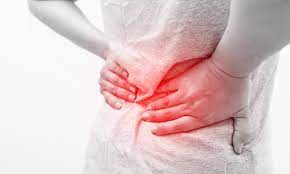How to determine if you have rhinitis
There are several methods to accurately determine if you have rhinitis, including observing symptoms, physical examination, blood tests, allergen testing, nasal endoscopy, etc. If you suspect you have rhinitis, it is advisable to visit the otolaryngology department of a hospital promptly for diagnosis and treatment under the guidance of a doctor.
-
Observing symptoms: If you experience symptoms such as nasal congestion, runny nose, sneezing, etc., and they persist for a long time, you may have rhinitis. However, it is important to note that these symptoms can also occur in other diseases such as the common cold, so diagnosis cannot be based solely on these symptoms.
-
Physical examination: A doctor will examine your nasal cavity to see if there is any redness, swelling, congestion, etc., and will also palpate the throat area to check for enlarged lymph nodes.
-
Blood tests: Blood tests can help determine if there is a bacterial or viral infection. If rhinitis is caused by a bacterial infection, there may be an increase in white blood cell count. If it is caused by a viral infection, there may be an increase in lymphocyte count.
-
Allergen testing: Allergic rhinitis is usually caused by exposure to allergens such as pollen, dust mites, etc. Allergen testing can identify specific allergens, allowing you to avoid them in daily life and help in the recovery of the condition.
-
Nasal endoscopy: Nasal endoscopy is a commonly used examination method in otolaryngology, which can directly observe the specific conditions inside the nasal cavity and assist in the diagnosis of rhinitis.
Once diagnosed, you can take oral antihistamines to relieve discomfort symptoms under the guidance of a doctor. Commonly used medications include levocetirizine hydrochloride tablets, loratadine tablets, etc. In addition, topical corticosteroid nasal sprays such as mometasone furoate nasal spray, budesonide nasal spray, and auxiliary nasal sprays can also be used as prescribed by a doctor to reduce local inflammation and improve discomfort symptoms.
In daily life, it is important to maintain good habits, avoid excessive fatigue, and pay attention to work-rest balance. In terms of diet, try to eat light and easily digestible foods, consume more fresh fruits and vegetables, and avoid spicy and greasy foods to prevent exacerbating the condition.
OTHER NEWS
-
- Treatment Methods for Cataracts
- By Jason 06 Mar,2024

-
- 4 Types of Exercises for the Body: Which Exercise is Better?
- By Fatima Amir 21 May,2024

-
- The Difference Between Surgical Abortion and Medical Abortion
- By Jason 06 Mar,2024

-
- Health Checkups and Tests You Need
- By Fatima Amir 23 May,2024

-
- Skincare in your 40s: How to get perfect skin in your 40s
- By Fatima Amir 17 May,2024

-
- 6 Yoga Postures for Staying Fit in your 60s
- By Fatima Amir 17 May,2024

-
- A Comprehensive Guide to Choosing and Using Nutritional Supplements
- By Prodosh Kundu 27 Jun,2024

-
- Five healthy staple foods to eat during weight loss
- By Prodosh Kundu 19 Aug,2024

-
- The Advantage of Invisalign Over Traditional Braces
- By Roha Tariq 07 May,2024

-
- Comparing the 6 typical symptoms of rhinitis to see if you have rhinitis
- By Dr. James 12 Apr,2024

-
- Questions to Ask your Doctor after Menopause and Health Chechups
- By Fatima Amir 23 May,2024

-
- Knowledge About Lower Back Pain
- By Jason 05 Mar,2024

 1
1 1
1